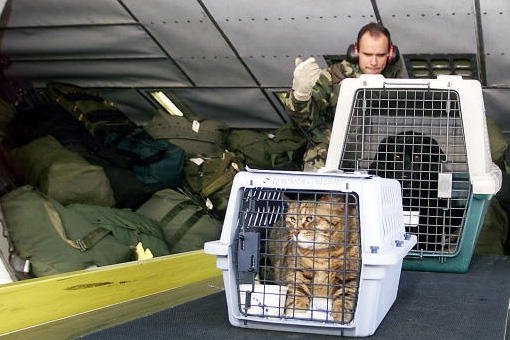I once worked with a college student who had a simple, straightforward career goal -- to work with animals -- but she slammed the door shut on the idea for one very misguided reason.
"I can't be a veterinarian," she told me during our first session together. "I volunteered in a veterinarian's office over the summer, and I couldn't handle the blood and the animals dying."
Thus, in her mind at least, she'd never be able to work with animals, because the only animal-related career she knew of was veterinarian.
Related: Unleash your career potential and get customized job recommendations based on your military experience and personality traits.
But vets -- and the often-mentioned zookeeper -- aren't the only people who make a living from their love for animals. Indeed, animal-related careers exist well beyond the vet's clinic and the zoo. Here's a look.
Training
If you've ever watched any television crime documentaries, you've undoubtedly seen police canine units featuring dogs that sniff out drugs hidden in a car or help locate a missing child.
Somebody trains those dogs. The same is true when it comes to training the dolphins that perform at aquariums and the horses that race for fortune and fame.
Pet Care
Sixty-three percent of American households -- or about 71.1 million homes -- have at least one pet , according to the 2007-2008 National Pet Owners Survey conducted by the American Pet Products Manufacturers Association (APPMA). The number of dogs (74.8 million) and cats (88.3 million) alone exceeds 163 million.
Who's taking care of those animals? Their owners, of course, but with considerable help from people like groomers, kennel managers, and even pet walkers and pet sitters.
Retail
The APPMA survey also reveals that Americans spent $38.5 billion on their pets in 2006, and they'll shell out an estimated $40.8 billion in 2007.
That money goes largely toward food, supplies and live animal purchases -- typically at retail pet stores staffed not only by customer-service personnel and managers, but also by class instructors and a host of behind-the-scenes operational personnel (e.g., accountants, finance professionals, human resources reps).
Related: Does your resume pass the 6-second test? Get a FREE assessment.
Animal Protection
In cities and towns large and small, you can find shelters run by dedicated people who help abandoned and/or injured animals get some rest and healing, and perhaps even find an owner, thanks to the pet-adoption programs they run.
Similarly, wildlife professionals work to ensure endangered animals get the protection they're entitled to (typically under strict laws), while animal welfare advocates fight to guarantee all animals -- especially those under the care of us humans -- are treated without cruelty.
Research and Outreach
Organizations like the Raptor Center at the University of Minnesota and the Marine Science Institute at the University of California, Santa Barbara offer an assortment of potential career possibilities in animal-focused research. You could study the migration patterns of the Canada goose or get a better sense for why whales occasionally swim out of the relative safety of the sea and into the uncertainty of freshwater rivers.
These same types of organizations often employ outreach personnel to teach the general public about various animals and their habitats. The Minnesota Zoo in Apple Valley, for example, employs staffers who offer educational seminars to children and adults throughout the Twin Cities area and the rest of Minnesota.
Therapeutic Settings
You've no doubt seen a visually impaired person using a guide dog to get around. Those dogs need to be trained extensively, presenting yet another opportunity for animal lovers who want to turn their passion into a career.
Similarly, animal-assisted therapists use animals, typically dogs or cats, to help people deal with psychological, emotional and even physical problems.
Self-Employment/Entrepreneurship
Perhaps you have a unique mishmash of skills and interests that, combined with your love for animals, could turn into a successful business.
That's just what photographer Amanda Jones did. She specializes in photographing dogs and cats for clients across the United States.
"The animals are great to work with," Jones said. "I feel very fortunate that I have such affection and respect for my subjects."
You can feel the same way -- even if you don't wear a vet's gown or a zookeeper's uniform.
Related: For the latest veteran jobs postings around the country, visit the Military.com Job Search section.
Looking for more job tips?
Sign up for a free Military.com membership to have military news, updates and job resources delivered directly to your inbox.











